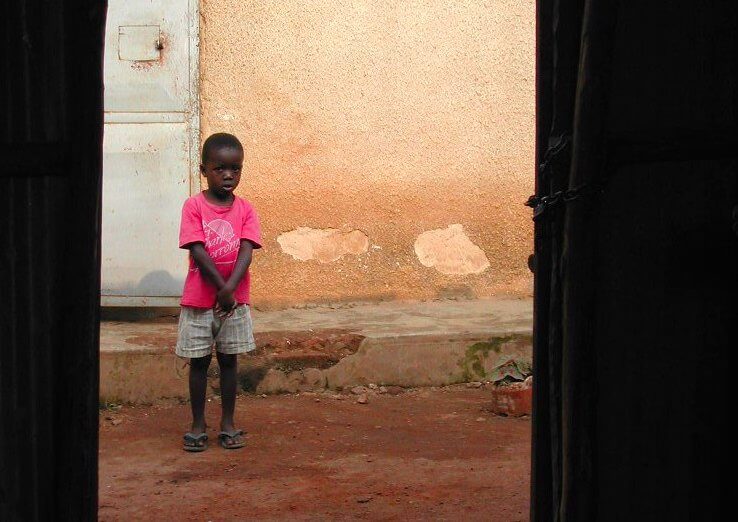The following was written for the American Anglican Council by the Rev. Ocen Walter Onen of Uganda, a recent graduate of the Bishop Tucker School of Theology at Uganda Christian University (UCU). The Rev. Canon Phil Ashey had the pleasure of meeting him while speaking at UCU last year, and they were able to talk about some of the development initiatives occurring in Uganda to tackle the poverty crisis. We are encouraged by the Rev. Ocen’s work in seeking out ways to revitalize outreach. His commentary sheds light on some of the issues faced by Ugandan communities, including the many Anglican churches that are there, and we are grateful to add his voice to the American Anglican Council’s international update.
INTRODUCTION
Approximately fifty-eight years since Uganda received her independence from the British, more than fourteen million Ugandans still continue wallowing in poverty. Global poverty rankings in 2018 placed Uganda seventh in the top ten poorest countries in Africa. This statistic raises many questions about the relevancy of various strategies currently employed by the government to alleviate poverty, along with the work that development agencies and faith-based organizations have done. For instance, one could ask, do those strategies fully address the systemic causes of poverty? Do they give space for the poor to equitably participate and lead in their own development? Do they empower the poor, or are they just giving them handouts? These questions among others demand clear answers if the country is to meet the United Nations’ sustainable development goal of “no poverty” by 2030.
It is in this context that I place the Asset-Based Community Development Strategy (ABCD), an inclusive citizen-driven, place-based, relationship-focused, and bottom-up approach to development. I strongly believe this would tremendously accelerate the efforts to eliminate multidimensional poverty in Uganda. To that effect, this article appeals to the government of Uganda, faith-based organizations, civil society, and international development agencies operating in the country to integrate ABCD within the framework of their development activities, strategize in strengthening the poor communities to leads their own development, and finally move the poor away from dependency to mutual interdependency and self-reliance.
ASSET BASED COMMUNITY DEVELOPMENT
Dear friends, let me begin with a quote from someone here who was very poor, to whom I asked the question, “What is poverty?” This was his reply: “Do not ask me, what is poverty? Just look at my hut without a door, the ragged clothes, the old utensils, my flat stomach. What you see is poverty!”
This description of poverty is one based on experience, showing how Uganda’s poor are entangled by a cluster of disadvantages that subjugate them to vulnerability, isolation, marginalization, oppression, and disempowerment. These disadvantages have immense negative effects on the physical, social, spiritual, and emotional facets of each human life. They make poverty a multi-faceted experience that requires a multi-faceted approach.
It is in this context that I want to suggest Asset-Based Community Development, abbreviated ABCD, which, according to its proponents, Kretzman and McKnight, ‘is an approach that encourages the community to build an inventory of the human financial, social, physical and natural assets of individuals’ households and the entire community.” This implies that ABCD encourages local people to mobilize their own resources for their development with minimal external dependence or none at all. From this definition, and given the situation here in Uganda, I see three merits of this strategy:
- ABCD prompts people to come together to initiate ideas to promote sustainable development, defined as “Development that meets the needs of the present without compromising the ability of future generations to meet their own needs.” ABCD can ignite our poor to come together in their communities and charter a way forward in fighting poverty, eradicating hunger, and responding to climate change.
- ABCD encourages both bonding and bridging of relationships. This increases the social capital of communities, making them embrace the three aspects of social harmony: tolerance, reciprocity, and trust. This is vital in alleviating poverty as different communities overcome their indifference and historical divides in order to engage with each other for the sake of improving commerce, trade, and peacebuilding.
- ABCD promotes local community participation, which refers to the act of local people working collaboratively to create and realize the desired goal rather than depending only on outside sources of help. Many times development practitioners have prescribed solutions to the problems of the poor without engaging them at all. This accounts for the many failures of multi-billion dollar projects geared towards alleviating poverty in the Global South but without the local participation needed for sustainability. When civic and political leaders, international development agencies, civil society organizations, and missions organizations operating among the poor in Uganda integrate ABCD with their own strategies, it will lead to inclusive and people-centered development projects.
I take the view that Asset-Based Community Development is an essential catalyst for Africans, not just Ugandans, to drive their own development. It will not only reinforce the current strategies we see today but also build a growing resilience in the lives of many poor Ugandans.



